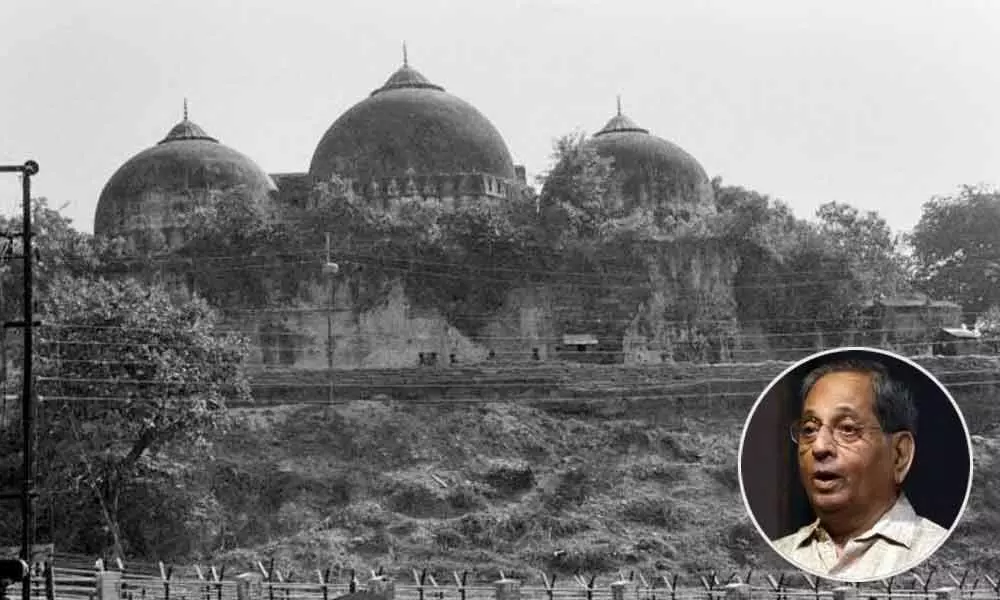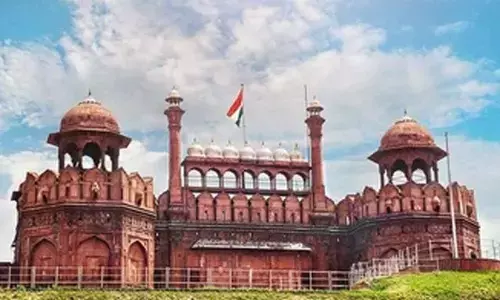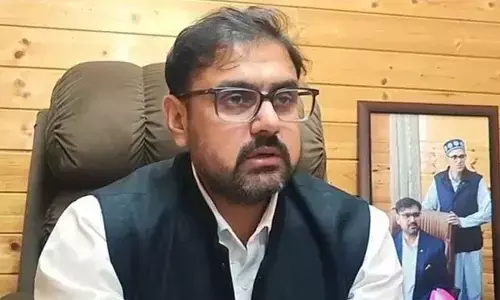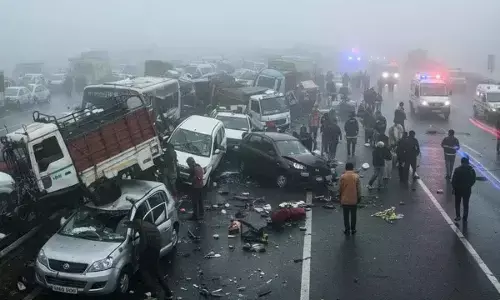P V Narasimha Rao rejected MHA report on Ayodhya in 1992: Ex-home secretary Madhav Godbole

He says as prime minister, Rao 'played an important role in this crucial test match, but, he turned out to be a non-playing captain'.
New Delhi: The Babri Masjid could have been saved if there was political will to act and the then Prime Minister P V Narasimha Rao did not accept a comprehensive contingency plan of the Home Ministry prepared before the demolition, claims Madhav Godbole who was the Union home secretary that time.
"If political initiative had been taken at the prime minister's level, the Mahabharata of this Ramayana could have been avoided," he says in his new book on the Ayodhya dispute. Seeking to draw a cogent picture of the events which transpired during the critical period before and after the demolition, Godbole says as prime minister, Rao "played the most important role in this crucial test match, but, unfortunately, he turned out to be a non-playing captain".
In "The Babri Masjid-Ram Mandir Dilemma: An Acid Test for India's Constitution", the author claims that besides Rao, former prime ministers Rajiv Gandhi and V P Singh also failed to take timely action when the mosque was under serious threat.
He says that when Rajiv Gandhi was prime minister, some workable compromise solutions were suggested to resolve the dispute, before positions had hardened on either side but no steps were taken.
V P Singh remained firm after promulgating an ordinance vesting the specified area in and around the Babri Masjid in the central government, he says.
In 1992, after detailed discussions with institutions and officers concerned, Godbole says the Ministry of Home Affairs prepared a comprehensive contingency plan for the takeover of the structure by invoking Article 356 of the Constitution.
The Ministry of Law had also cleared the Cabinet note for this purpose, he adds. He "submitted the contingency plan" to the Cabinet Secretary, Principal Secretary to Prime Minister, Senior Advisor to Prime Minister, Home Minister and the Prime Minister on November 4.
It was emphasised therein that in order for the central paramilitary forces to successfully take over the Babri Mosque and the surrounding area to ensure its security, timing and the element of surprise were of essence, Godbole recalls. "For this purpose, it was underlined that action would have to be taken well before the proposed date of commencement of 'kar seva' so as to avoid the presence of large number of 'kar sevaks' and huge crowds at the time of action," he writes in the book, brought out by Konark Publishers. It was also highlighted that imposition of President's Rule under Article 356 would be necessary before the central forces commenced their action, he says.
But Rao felt the contingency plan was not workable and dismissed it, he says. "Rao held a different view regarding the powers of the central government under the Constitution and preferred to rely on the promises made and commitments given by the state government to the central government, the National Integration Council (NIC) and the Supreme Court," Godbole says.
As a result, the author says, the "Kalyan Singh government was left free to deal with the situation. Not surprisingly, it permitted the kar sevaks to take the law into their own hands and to destroy the masjid. It was a clear case of the state government failing in its responsibilities under the Constitution".
But it was not just the central government which failed in its obligations to act, other institutions under the Constitution also failed, Godbole asserts.
"The founding fathers of the Constitution could not have visualised such all-round failure of governance and non-observance of constitutional precepts and values. Clearly, India had made a mockery of its Constitution. The worst culprit was the state government which deliberately and consciously failed to fulfil its commitments to safeguard the structure," he says.
The former home secretary also blames the then governor of Uttar Pradesh B Satya Narayan Reddy for "failing miserably in assessing the seriousness of the situation in the state and advising the Centre against imposition of President's Rule".
Finally, the judiciary too was responsible in delaying the decision in the title suits pending before it since 1950, in spite of repeated pleas by the parties for expediting the hearings, he says.
He is also of the view that intermixing religion and politics has added fuel to the fire. After the demolition of the mosque, Godbole took voluntary retirement from the Indian Administrative Service in March 1993 when he was Union home secretary and Secretary, Justice.














